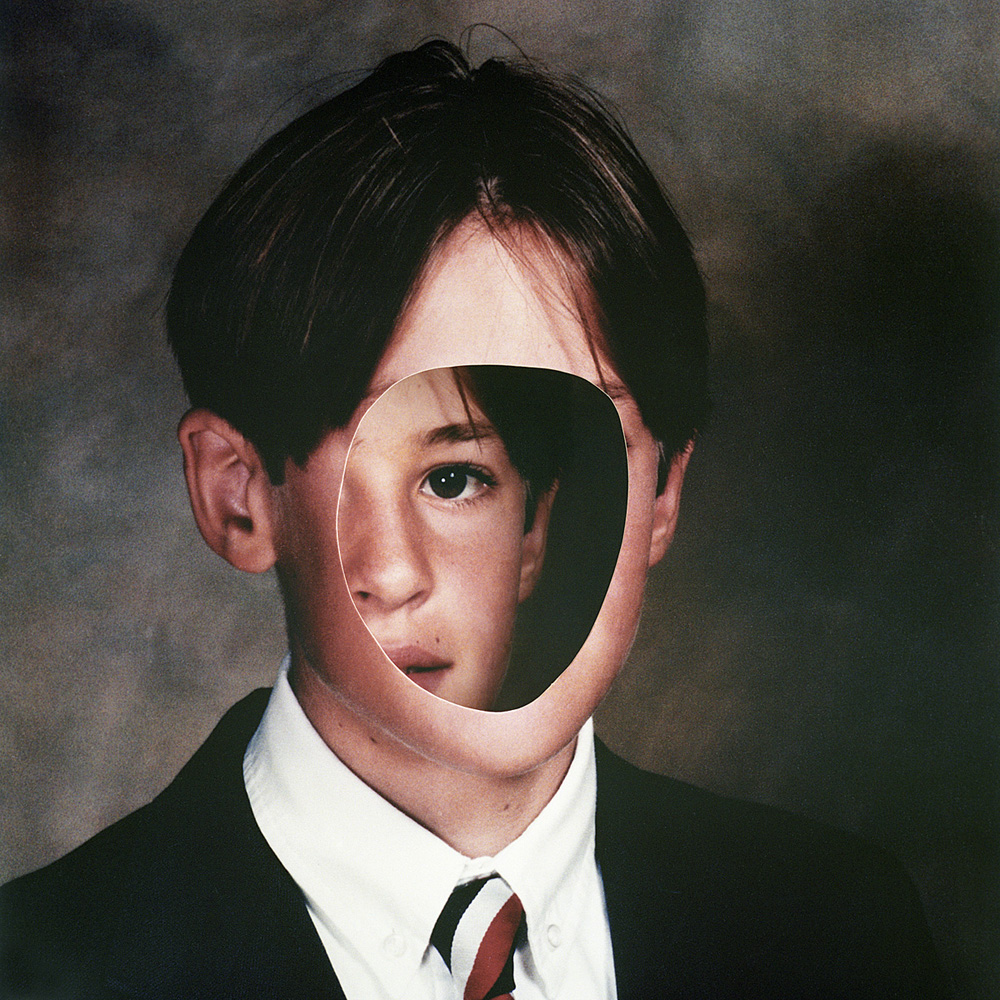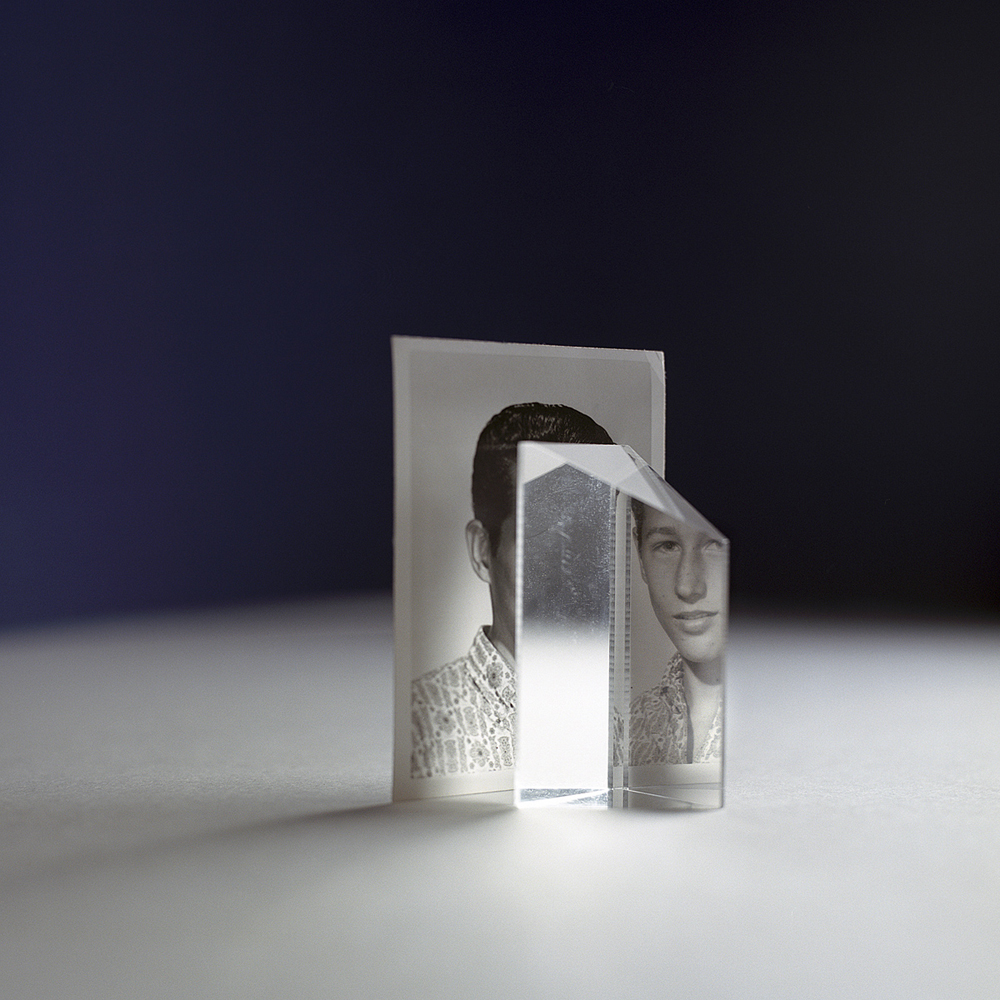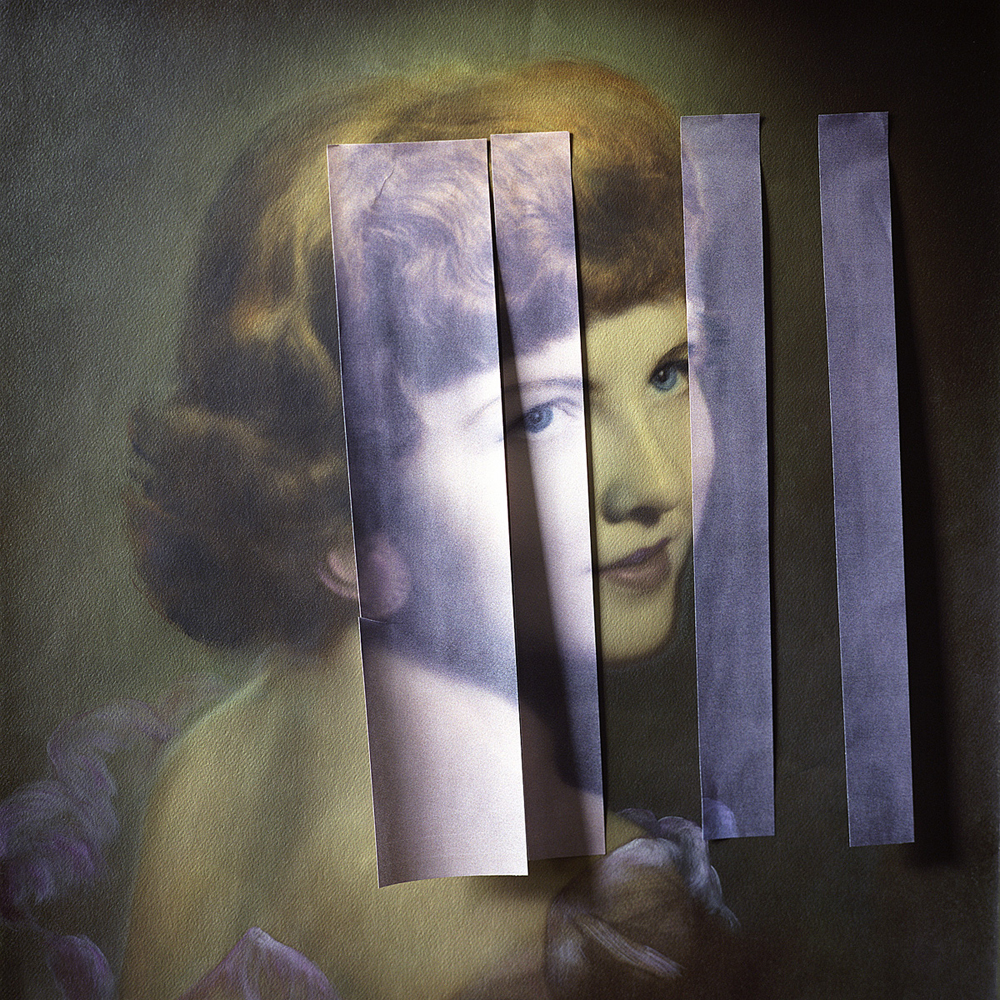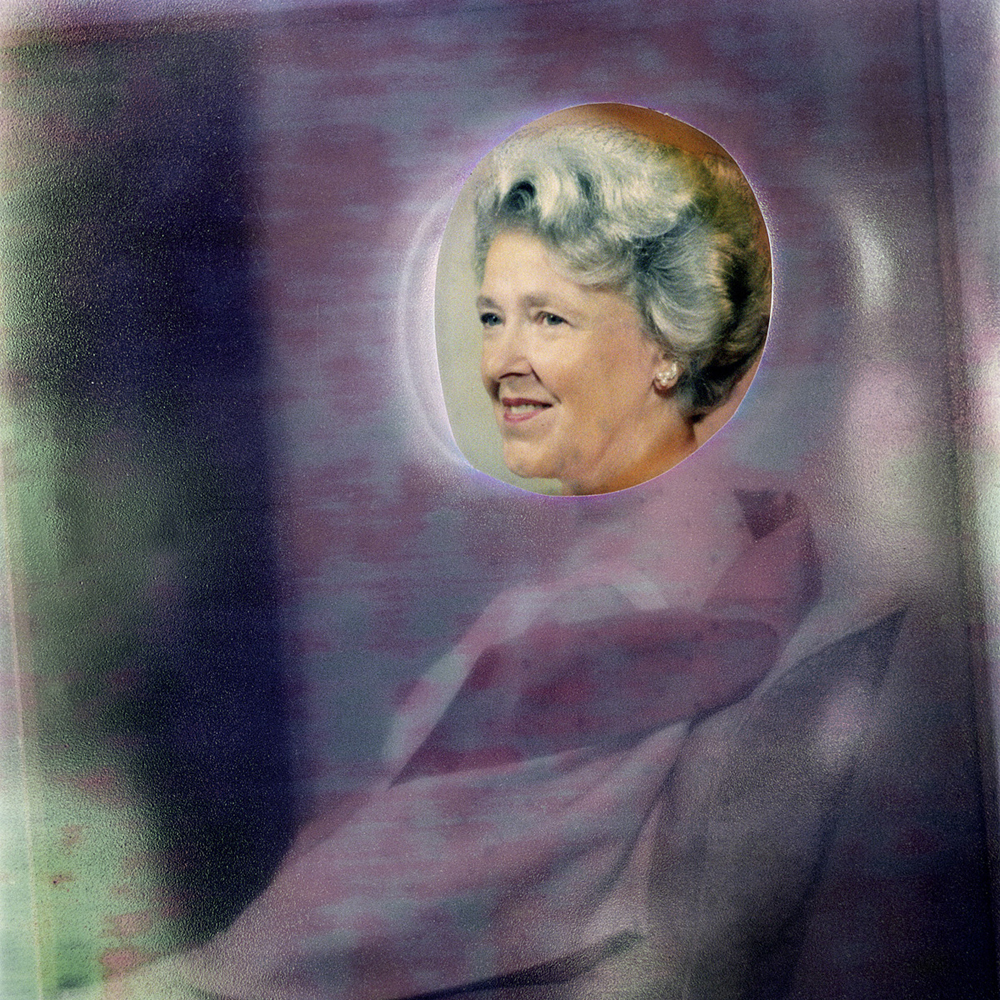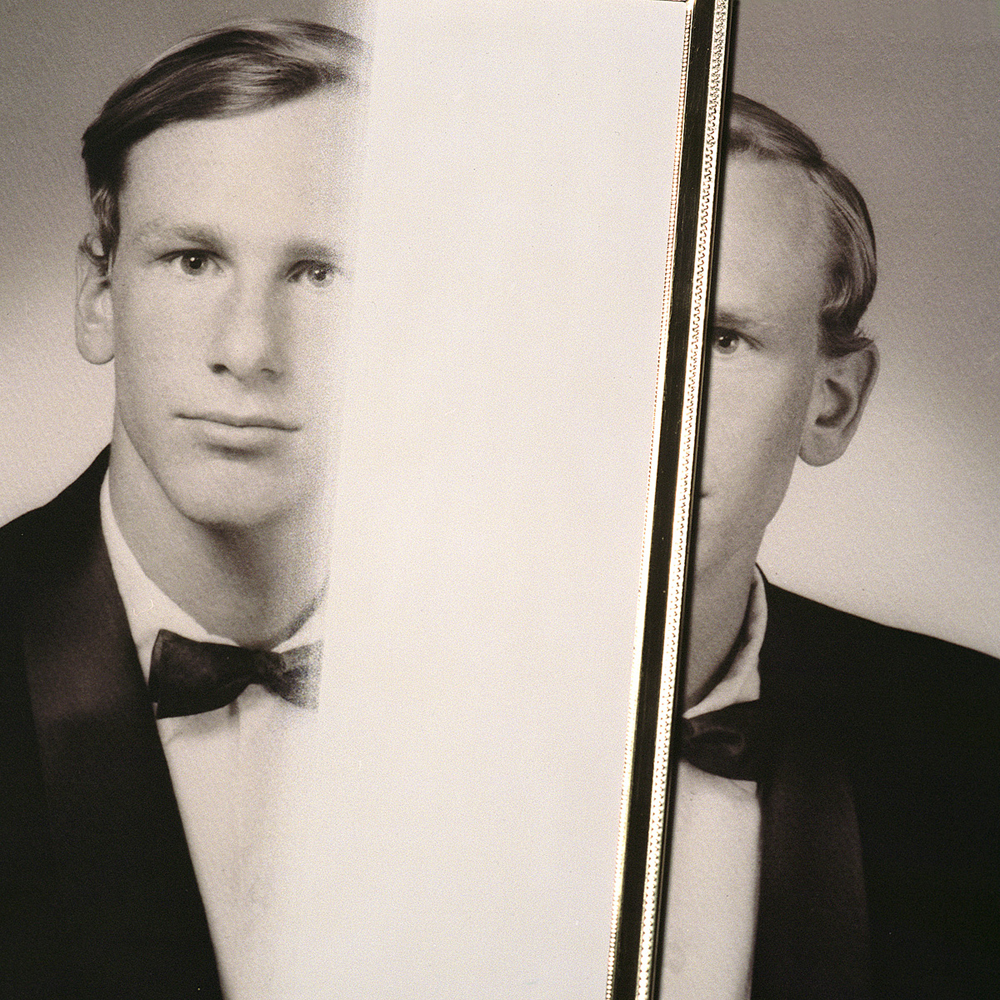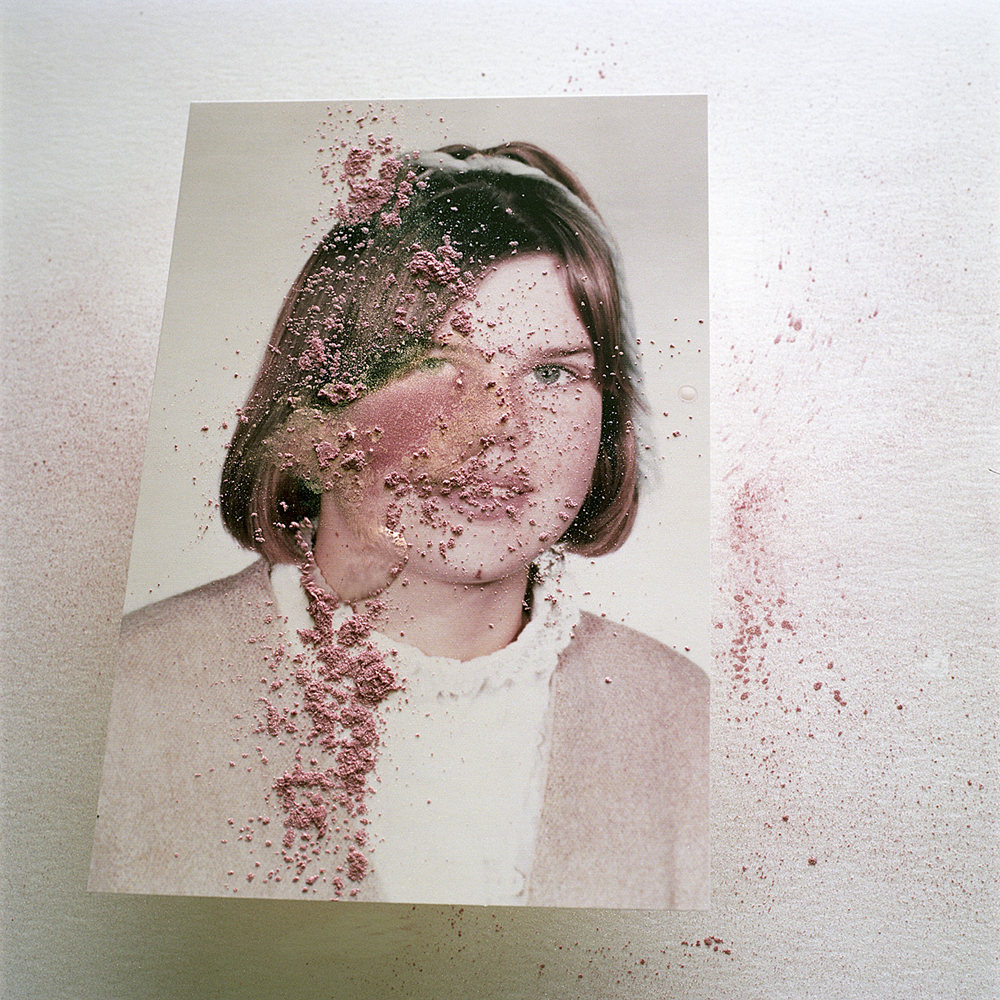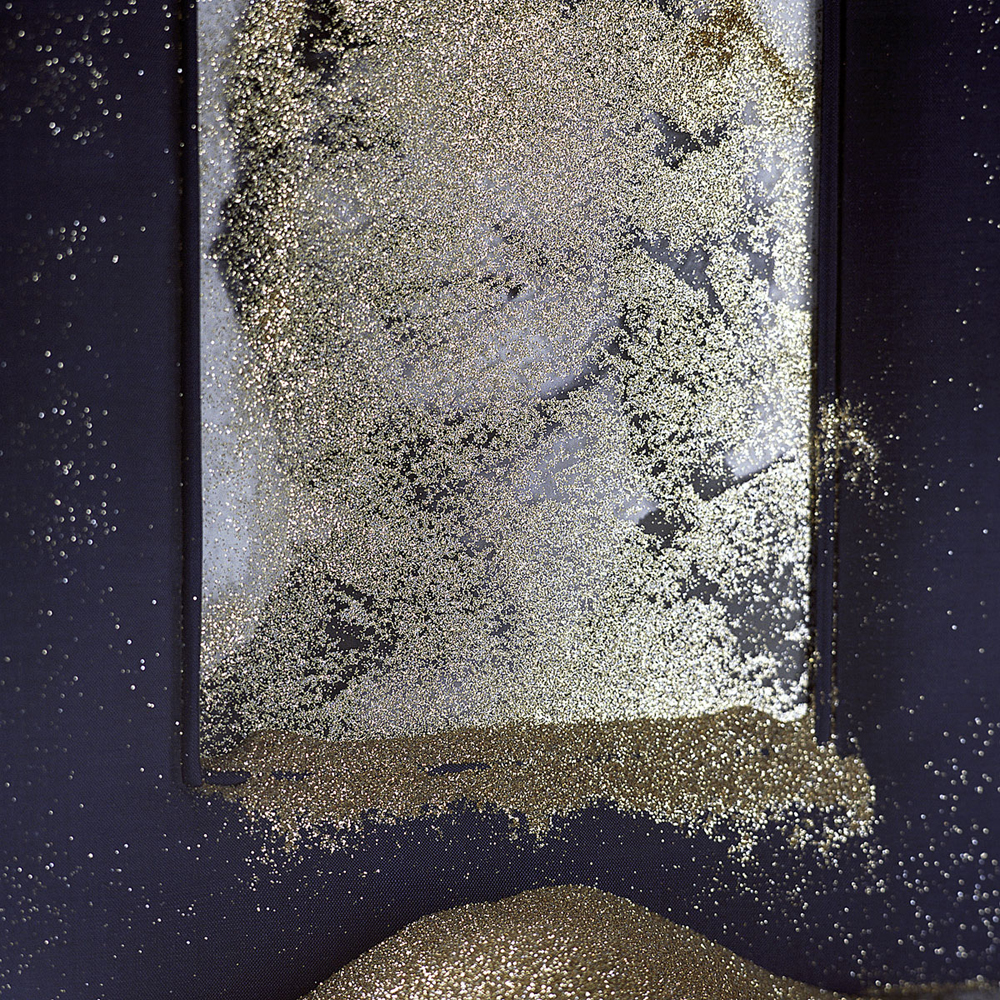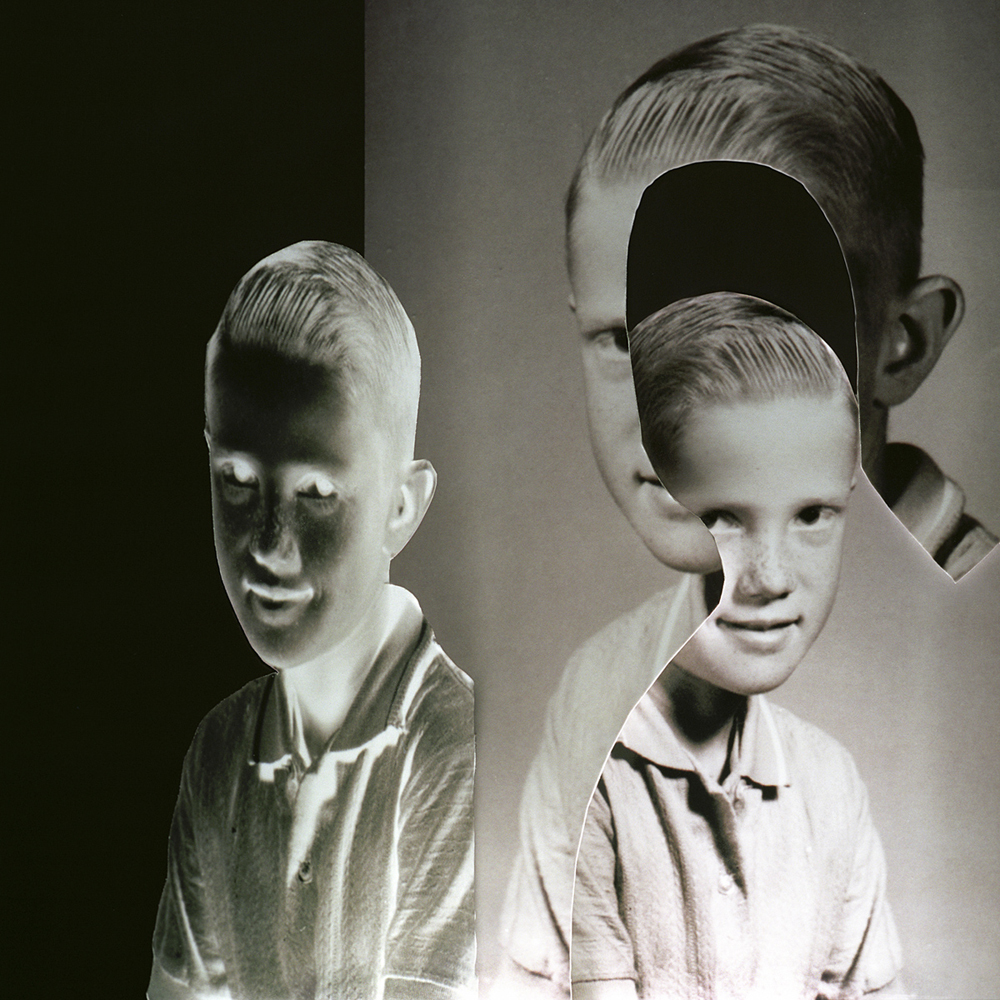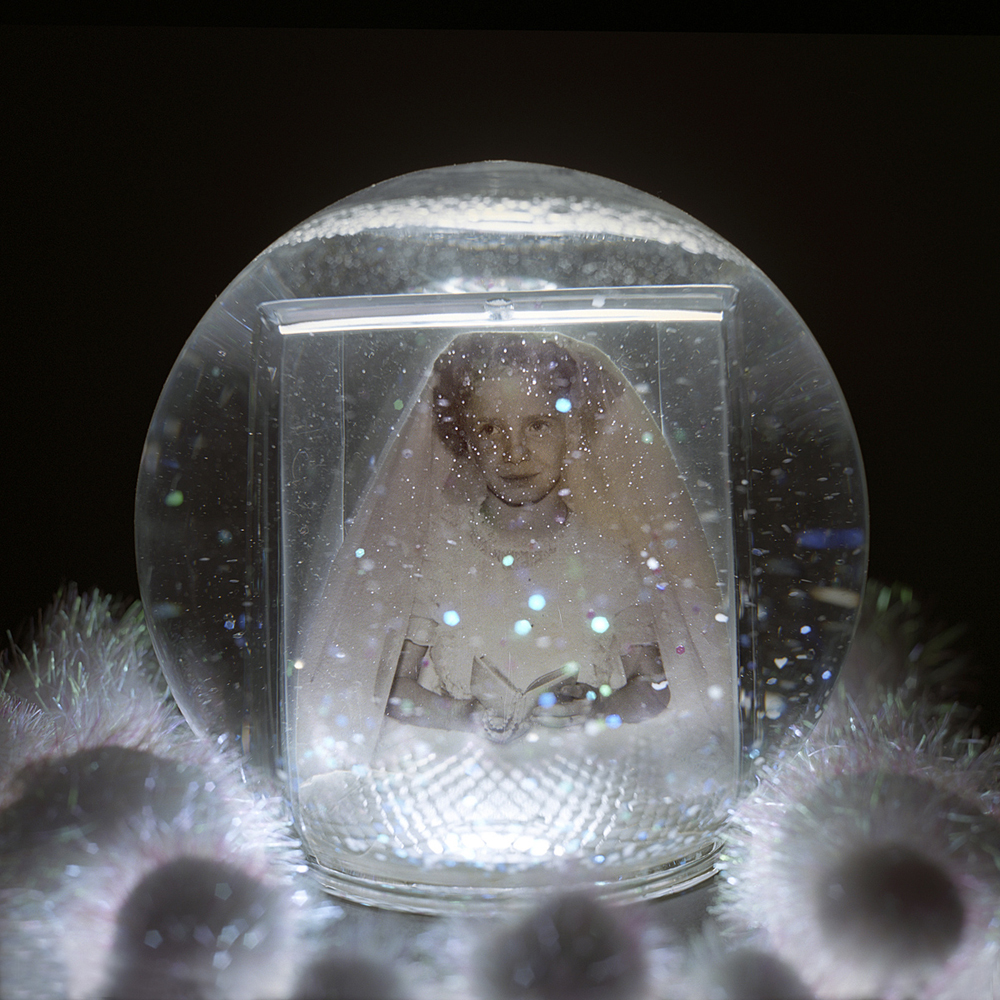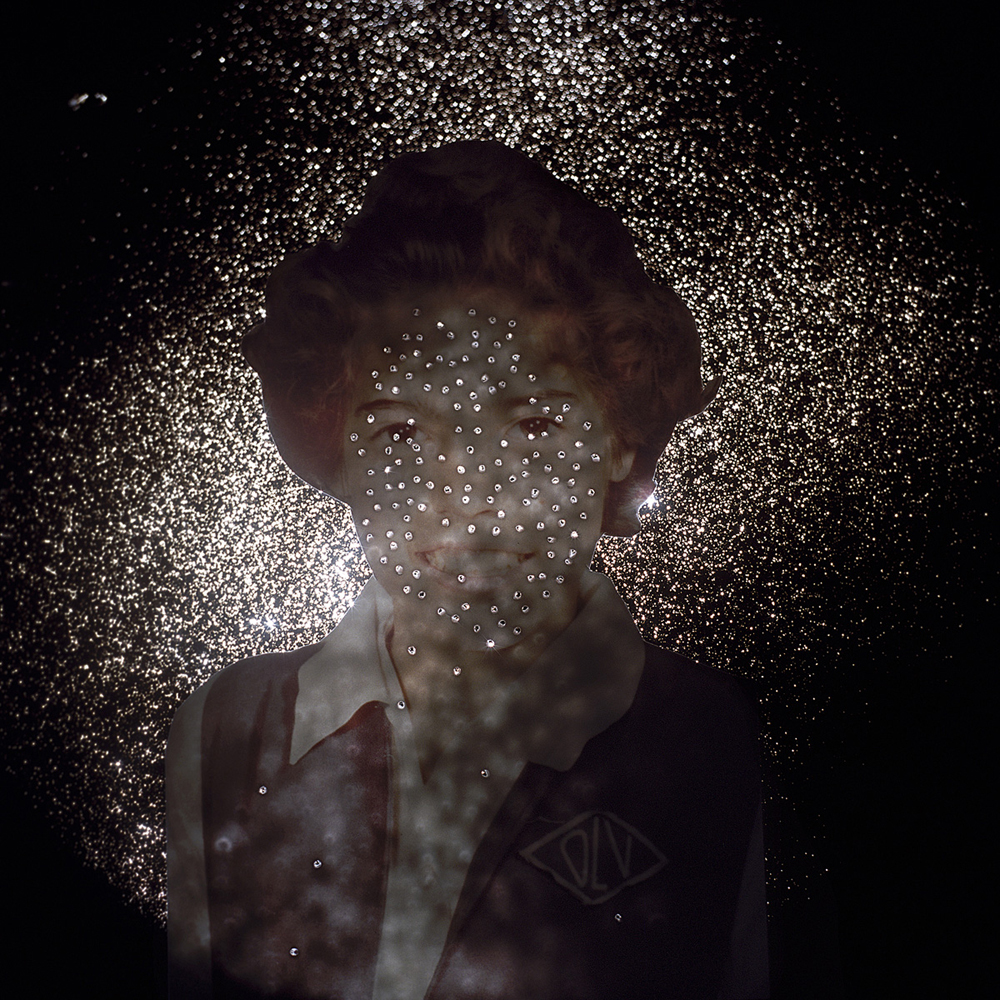Vancouver-based photographer Birthe Piontek is most widely recognized for her intimate, narrative-driven portraits. While much of her work takes a fairly straightforward approach, her recent series “Mimesis” uses re-photographed vernacular images to create collages and still lifes that expand on her personal portraits with an investigation into the broader complexity of human identity.
Piontek begins by searching for found images on Ebay, in thrift stores and flea markets. She primarily looks for images like studio portraits and other non-candid scenarios in which the subject gazes directly into the camera without distraction. Piontek writes: “The moment where it is all about the person and not so much about capturing a situation or event, so that the image becomes a representation of that person.”
Knowing little about the people in the photographs, she uses them as source material to create her own fictions about their identities. “I usually spend quite a bit of time with the image, looking at it and familiarizing myself with it," Says, Piontek. "In a way I try to get to know the person that is shown in it, and figure out the essence and uniqueness of that particular image.”
Once she determines a photograph to be suitable, Piontek scans it, and reproduces the image, in many cases working from its copy. She begins manipulating the copy, often cutting into it and incorporating other materials like glass, paint, foil and fabric to create unique still lifes that give the image an entirely new form. While the final piece is still a one-dimensional image, it often looks like an installation shot of a diorama, a three-dimensional collage or still life. “It’s a very physical, almost sculptural process, something that is new and very exciting to me.”
The title of her series, “Mimesis,” comes from the ancient Greek philosophical term related to imitation, representation and the presentation of the self. For Piontek, its most resonating meaning is a reference to the relationship between an image and its “real” original source. This idea was at the heart of her shift from from shooting portraits to creating new images from found photos.
“I questioned the power of an image and what it can actually reveal of a person’s identity,” says Piontek “I felt I had come to a bit of a dead end in my practice, a point where I thought I would just repeat myself if I continued taking pictures the way I did. There was also the feeling of ‘hitting a wall,’ of staying on the surface when my desire was to go deeper, underneath that surface, and explore the internal landscape of a human being.”
While the people in her found images likely have their own narratives, their identities are obscured by the physical object-ness of their photographs left behind. Ultimately, Piontek’s creations are a means to better understand her own process of representing people, and the limits of photography to accurately represent their actual identity.
“In this project I am not only investigating the relationship between the image of a person and the original but also the question to what degree the complexity of human identity can be visualized in an image. As with any form of art, this project is fictional - it’s a mythical world I created that illustrates what I think human identity might look like.....Mimesis is a somewhat broader look at the complexity of human identity and in a way also a meditation on portrait photography and the power of an image.”
Bio: Birthe Piontek is a fine art photographer based in Vancouver BC, Canada. Originally from Germany, she moved to Canada in 2005 after receiving her MFA from the University of Essen in Communication Design and Photography. Her project The Idea of North won the Critical Mass Book Award 2009, and was published as a monograph in 2011. Her work has been exhibited internationally, in both solo and group shows, and has appeared in a number of international publications like The New York Times Magazine, Le Monde, Wired and The New Yorker among others.

